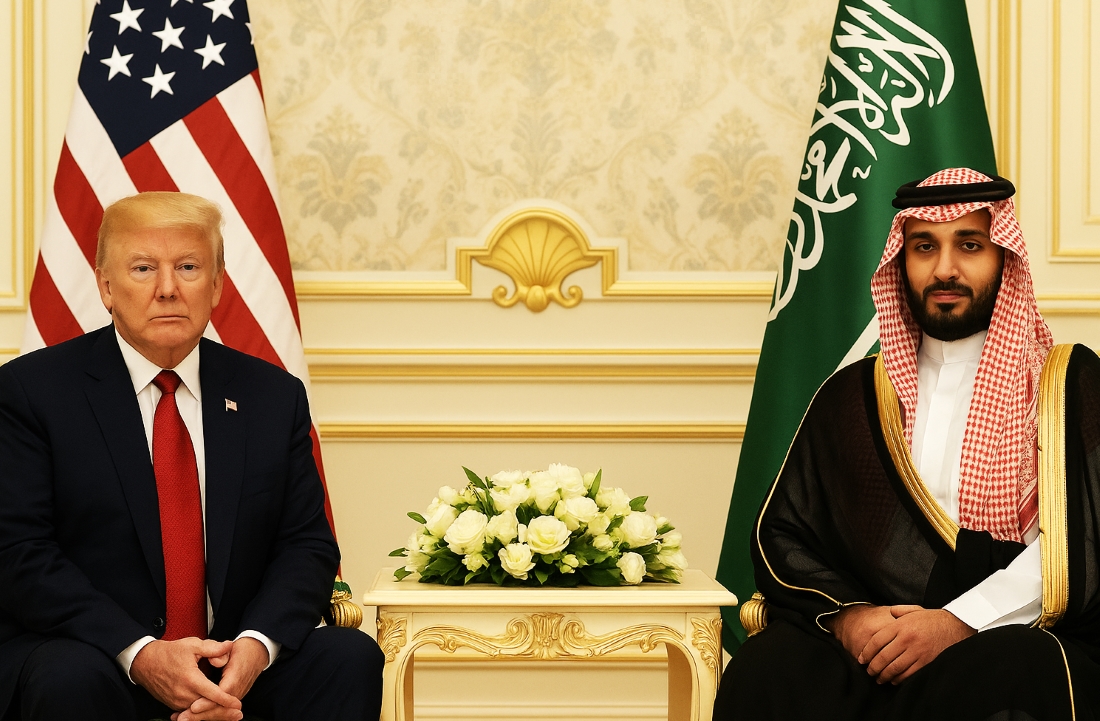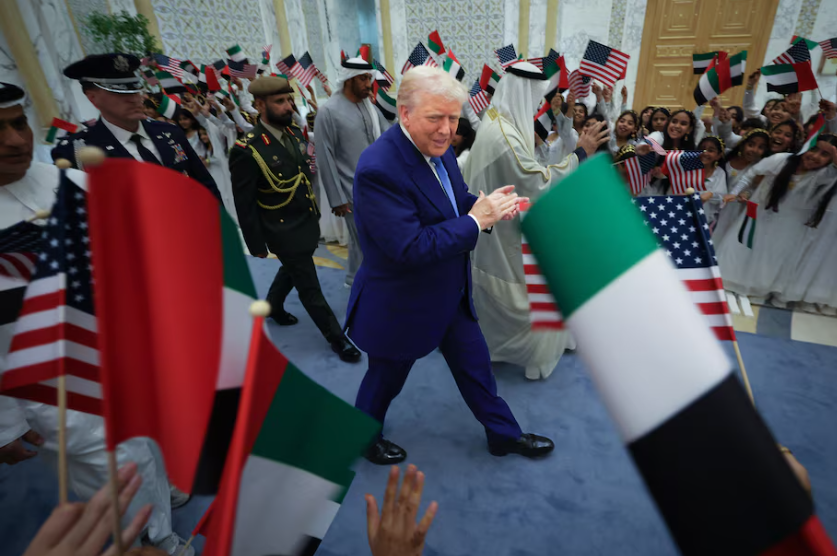Trump has been escalating pressure on leaders in the Middle East to up their investment in the United States.
Trump has been escalating pressure on leaders in the Middle East to up their investment in the U.S., and his Arab counterparts in the Persian Gulf appear willing to partake in the optics of splashy spending as they seek to firm up their relationships with a president known for his penchant for pageantry. But economists, and people familiar with the coffers of the Saudi government particularly, question whether the countries can live up to these bold promises — even over the course of a decade.
“It’s sort of like the region’s tying a big bow around itself,” said Karen Young, a senior fellow at the Middle East Institute. “It’s a big box, but maybe it’s a smaller present inside.”
Officials in Saudi Arabia and the UAE included deals that predated Trump’s presidency in their announcements to inflate the investment figures, according to an official who, like others, spoke on the condition of anonymity to detail private discussions.
One businessman with close ties to Saudi Arabia described the creative math underway in Riyadh ahead of Trump’s visit. The Saudi royal court contacted “all the top businessmen” in the gulf nation “and they were asked: ‘How much have you invested in the United States in the last two years? How much have you put in the United States in any kind of investment — real estate, stocks, bonds?” the businessman said, speaking on the condition of anonymity so as not to jeopardize those close ties. The implication, he added, was that the Saudi government was seeking to assemble a set of numbers that could be included in the total investments announced during Trump’s visit.
Trump on Tuesday announced that the Saudi government would invest $600 billion in the United States, while still repeatedly teasing that the country should invest up to $1 trillion. But the deals that the White House announced in the country so far total less than $300 billion. Some of the projects in that tally were previously announced, including some of the plans to improve infrastructure such as King Salman International Airport. One of the U.S. companies, Jacobs, had announced it was selected for the airport project in August.

The Trump administration has also taken a broad view of what it counts as a foreign investment — including military purchases in its estimates.
Two of the arms deals it announced appeared to predate the Trump administration. The Biden administration in 2022 notified Congress of its intention to sell Qatar a $1 billion “Fixed Site-Low, Slow, Small Unmanned Aerial System Integrated Defeat System (FS-LIDS)” built by Raytheon to counter unmanned aircraft. On Wednesday, the White House announced that Raytheon had “secured a $1 billion agreement for Qatar’s acquisition” of that same system.
Also on Wednesday, the White House announced a $2 billion General Atomics deal to sell drones to Qatar. But that sale has “been in the works for years,” according to a congressional aide, and the notification was sent to Congress in March.
The White House said an additional $38 billion represented “potential investments” that were outlined in a “statement of intent” with Qatar.
“A lot of it is going to be aspirational,” Hussein Ibish, a senior resident fellow at the Arab Gulf States Institute in Washington, said of the big numbers rolled out in Riyadh, Doha and Abu Dhabi. “A lot of it is going to be promised and not delivered on.”
“There’s a growing list of demands in terms of spending and investment relative to a shrinking pot of oil money that’s going to be coming in this year,” said Tim Callen, a visiting fellow at the Arab Gulf States Institute. Trump has at times appeared to acknowledge the competing demands confronting the Saudi government. He said at a conference in February that he has told Saudi Arabia’s leaders “to put your country first.” “Whether it’s Saudi Arabia, whether it’s something else, you’re going to put your country first, but we’re going to have plenty left over to help others also,” he said. “As long as you invest in America, build in America and hire in America, that means that I’m fighting for you.” Experts studying the Middle East said the White House’s rhetoric on this trip echoed Trump’s proclamations in 2017. Trump has claimed that during his first presidency, Saudi Arabia agreed to buy $450 billion in U.S. products. But sales on that scale did not materialize, according to an analysis that Callen conducted. During his 2017 trip to the kingdom, Trump compiled “a list of real deals that he has struck, aspirational deals that may or may not have been struck, phony deals that won’t be struck, and deals struck by his Democratic predecessor that will be credited to himself. And he comes up with a gigantic number close to a trillion,” Ibish said. But this time, he’s doing it “three different times.”

